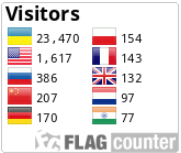EThNIC TOLERANCE FORMATION OF STUDENTS ON ThE PRINCIPLES OF MULTICULTURALISM
DOI:
https://doi.org/10.28925/2518-7635.2016.1.16Keywords:
education of ethnic tolerance, ethnic tolerance formation of students, ethnic tolerance, multiculturalism, multicultural education, tolerance.Abstract
The paper presents a theoretical and methodological substantiation processes connections of multicultural education and the formation of ethnic tolerance of students. Historical and pedagogical analysis of the formation of positive emotional and value attitude to people of other nationalities have been done. The principle of multiculturalism is defined as a pedagogical standard of human involvement to an ethnic, national and world cultures, forming readiness to live in a multiethnic environment. In the article the role of tolerance of the individual regulation of relations in today’s multicultural society is highlighted. Social transformation processes are characterized which actualize search methods of formation of ethnic tolerance in a multicultural area of the country. Ethnic tolerance is described as psychosocial quality of the individual that is ready for cooperation, partnership, cultural interchange, which is based on the principles of mutual understanding and patience. Pedagogical conditions and principles of ethnic tolerance of students on the basis of multiculturalism in social and educational activities of the university.Downloads
References
Angelina, E. Ethnic tolerance. Retrieved from http://mdu.edu.ua/spaw2/ uploads/files/4_22.pdf
Bezyuleva, G. (2003). Tolerance: opinion, search, decision. Moscow: Verbum-M.
Gryva, O. (2005). Socio-pedagogical bases of forming tolerance in children and youth in the multicultural environment: Monograph. Kyiv: PARAPAN.
Gukalenko, O. (2004). National school in multicultural education space. Multicultural education and national School: Materials of the “round table” of the “Pedagogika” scientific-methodical journal. Simferopol, 18-19, 36.
Danko, T. (2008). Social and cultural origins of extremism. Right extremism and tolerance: from the experience of Ukraine and Germany. Kyiv: Zapovit.
Drozhzhina, S. (2006). Tolerance as an effective factor of democratization of Ukrainian society. Multiversum. Philosophic Almanac. Kyiv: Center of spiritual culture. Retrieved from www.filosof.com.ua/Jornel/M_55/Drozhzhina.htm
Kremen, V. (ed.). Encyclopedia of Education. Kyiv: Yurinkom Inter.
Kremen, V. (2010). Philosophy of humanocentrism in educational space. Kyiv: Partnership “Znannya Ukrayiny”.
Pometun, A., Sultanov, L. (2010). Human in a multicultural society: study guide for higher schools teachers of elective courses for students of socio-humanistic disciplines. Kyiv: “Engineering”.
National Doctrine for Development of Education (2002) Education of Ukraine, 33, 4.
Balabanova, K., Sysoyeva, S., Sokolova, I. The problems of multiculturalism in continuous professional education: scientific edition. Mariupol: MESYuS. Mariupol state university.
Additional Files
Published
How to Cite
Issue
Section
License
Copyright (c) 2018 The Modern Higher Education Review

This work is licensed under a Creative Commons Attribution-NonCommercial 4.0 International License.













